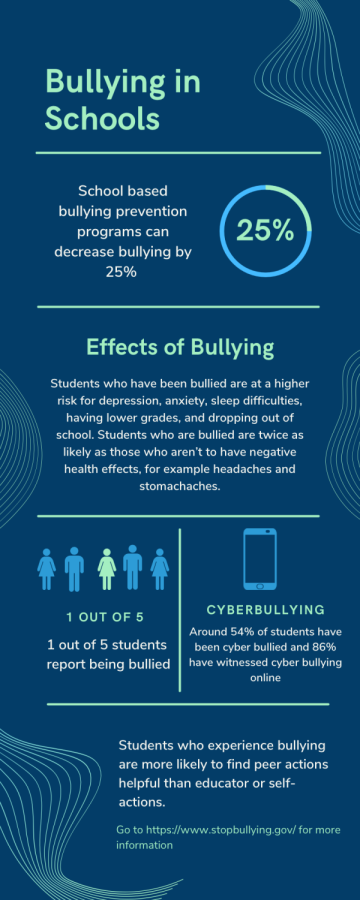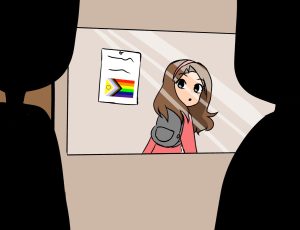Words DO Hurt
Sophomore opens up about bullying experiences
February 2, 2022
Faggot!
Queer!
Homo!
Sixteen year old high school student Freddie Wilson sits down staring at his phone looking at the harsh comments popup one after the other on their screen. This is something that he has been experiencing for around six to seven years.
“It’s been pretty much since I’ve started joining chat rooms,” Wilson said.
Bullying happens in every school around the world. Since the advent of the internet, bullying has transitioned from in-person to a virtual format.
According to stopbullying.gov, about 20% of students under the age of 18 are bullied nationwide, and 15% of students aged 12-18 have reported being cyber bullied. However, the percentage of people who have been cyber bullied has more than doubled. Some sites, apps and games that these people have reported being bullied on are: YouTube, TikTok, Instagram, Minecraft, Discord, Twitter, Snapchat and more. According to Microsoft most kids have access to the internet at around age eight. Most people target others with different beliefs, disabilities, people of color, or those who are a part of the LGBTQ community. In fact around 49% of LGBTQ students experience cyberbullying.
“I’ve been called quite a few slurs including gay slurs and racial slurs even though I’m not a person of color,” Wilson said
Some people who are less socially successful use bullying as a way to cope with their own problems or issues happening in their life.
“I think it’s just some people looking for an excuse to yell at other people or that they do it just acting out of aggression or maybe they’re upset about something,” Wilson said.
Many mental health disorders can stem from being bullied including depression, anxiety and low self-esteem.
“I have several friends that have very bad mental illnesses or things that have happened because of bullying,” Wilson said.
Many people who face bullying often suffer in silence due to the fear of not being believed or of being called a “snitch” as well as just being ashamed or embarrassed. In cases of cyber bullying kids don’t tell others, because they don’t want to lose their access to the internet.
“I have told people about the bullying but there hasn’t been much to help with. Some people have stepped in to help me at times though,” Wilson said.
It’s always best to tell someone when things happen online and to seek treatment if you are dealing with negative mental health.
“Just try not to listen to it, it doesn’t matter what they say, because it’s not true. A lot of these people are just trying to get under your skin and bother you. It’s like the saying, sticks and stones may break my bones, but your words just make me stronger, ” Wilson said.
(Names have been changed to protect the innocent.)
(This article is part of an In-Depth Feature series. Read the last article in the series called “Real Price of Bullying” Victims pay the tab”)







